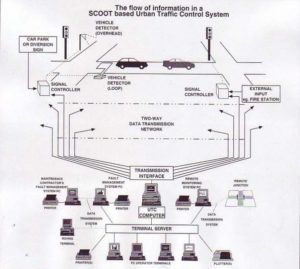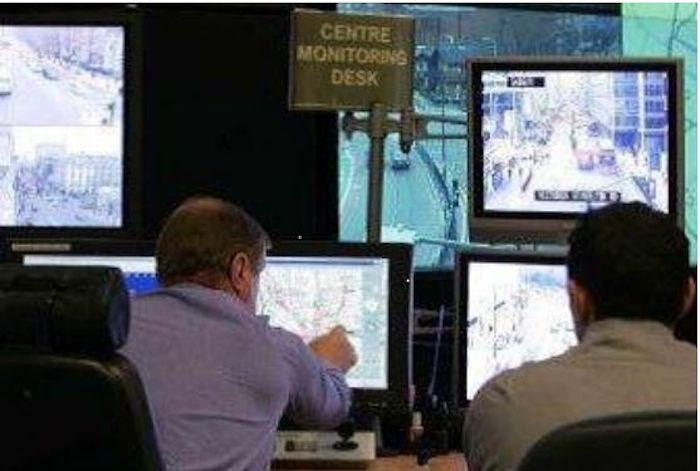The UK’s Transport Research Laboratory (TRL) has announced that its software division will be unveiling the latest version of its latest adaptive urban traffic signal control system at the Highways UK 2019 show that takes place at the NEC Birmingham on November 6-7.
The Highways show is a flagship event for roads and transport in the UK, bringing together a wide range of stakeholders involved in planning, designing, building and operating new technology. TRL Software is demonstrating the capabilities of the new Version 7 of its SCOOT (Split Cycle Offset Optimization Technique) traffic management software system. SCOOT has proved to be an effective and efficient tool for managing traffic on signalized road networks and is now used in over 250 towns and cities in the UK and overseas. SCOOT uses data from vehicle detectors and optimizes traffic signal settings to reduce vehicle delays and stops.
 There are a number of basic philosophies that led to the original development of SCOOT. One of these was to provide a fast response to changes in traffic conditions to enable SCOOT to respond to variations in traffic demand on a cycle-by-cycle basis. SCOOT responds rapidly to changes in traffic, but not so rapidly that it is unstable; it avoids large fluctuations in control behavior as a result of temporary changes in traffic patterns. Preparing such signal plans requires traffic data to be collected and analyzed for each situation and time of day for which a plan is required. This is time consuming and expensive and unless plans are updated regularly, they become less and less efficient. To overcome these problems, the concept of a demand responsive Urban Traffic Control (UTC) system was developed. Initial efforts were not successful, mainly because of a continuing reliance on plans, either pre-prepared or dynamically developed.
There are a number of basic philosophies that led to the original development of SCOOT. One of these was to provide a fast response to changes in traffic conditions to enable SCOOT to respond to variations in traffic demand on a cycle-by-cycle basis. SCOOT responds rapidly to changes in traffic, but not so rapidly that it is unstable; it avoids large fluctuations in control behavior as a result of temporary changes in traffic patterns. Preparing such signal plans requires traffic data to be collected and analyzed for each situation and time of day for which a plan is required. This is time consuming and expensive and unless plans are updated regularly, they become less and less efficient. To overcome these problems, the concept of a demand responsive Urban Traffic Control (UTC) system was developed. Initial efforts were not successful, mainly because of a continuing reliance on plans, either pre-prepared or dynamically developed.
TRL developed a methodology to overcome these problems. An on-line computer continuously monitored traffic flows over the whole network, fed the flows into an on-line model, and used the output from the model as input to its signal timing optimizers. These optimizers made a series of frequent small adjustments to signal timings to minimize the modelled vehicle delays throughout the network. This was the basis of SCOOT which, has been continuously developed to meet the needs of today’s traffic managers.
With a new bespoke version of the industry-standard UTC software installed, the Highways show will be a first opportunity for visitors to observe SCOOT 7 in action ahead of its launch in the first quarter of 2020. Unique to TRL, SCOOT 7 will be a fully adaptive UTC system that responds automatically to traffic fluctuations, removing the need for signal plans that are unable to manage increasingly complex traffic patterns. Introducing critical capabilities including bus priority and cycle and pedestrian optimization, SCOOT 7 will also provide users with the ability to manually trigger gating of traffic signals, which is essential as part of required mitigation strategies.
Due to its ability to be deployed on an organization’s chosen cloud platform, SCOOT 7 will be a subscription-based platform, providing not only commercial flexibility, but also complete saleability due to TRL’s aim to release the current tied-in hardware supplier relationship, resulting in a reduction in the total cost of ownership.





